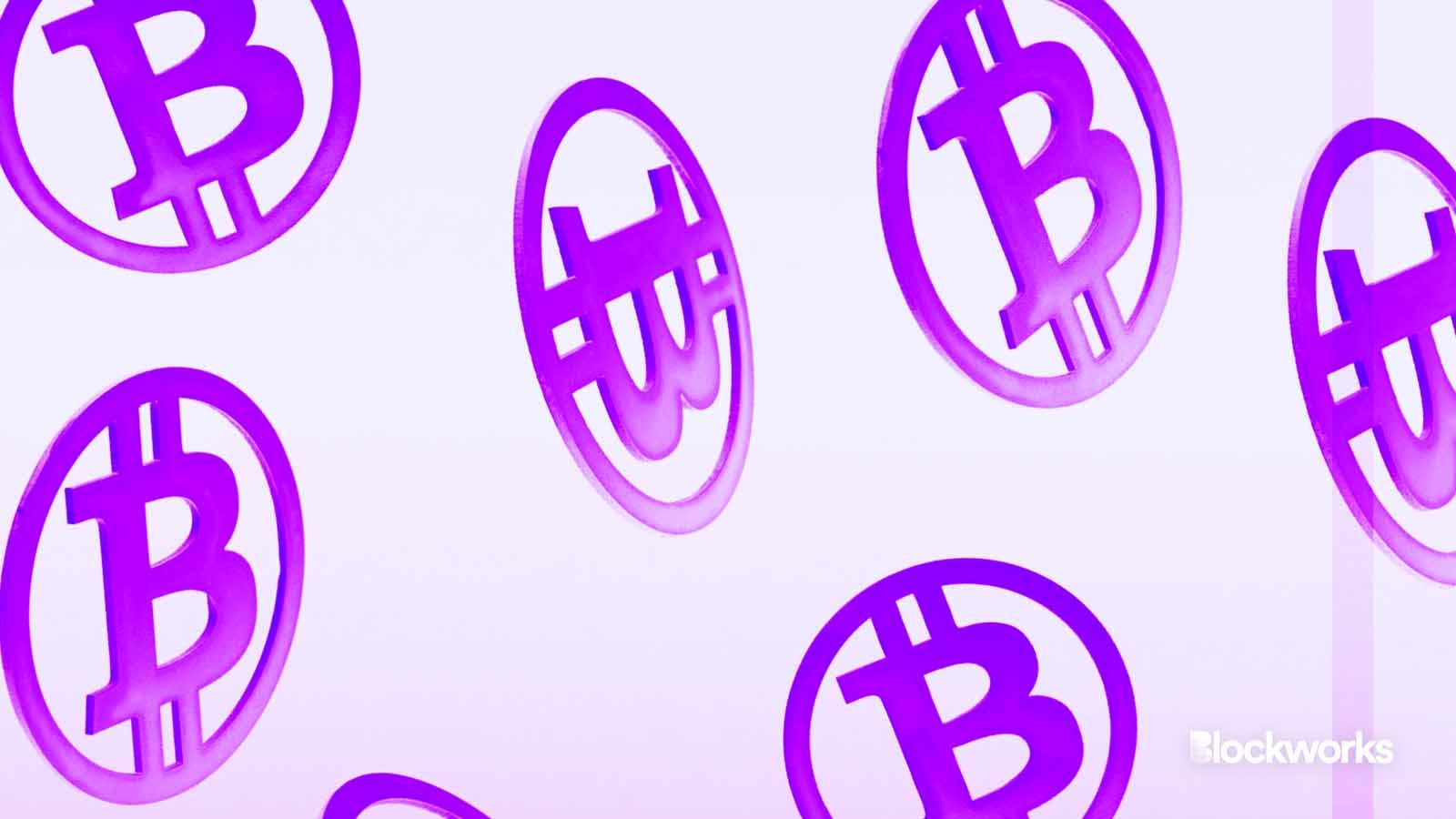Let’s be real: Bitcoin ETFs have never really mattered
What’s good for traditional finance is not good for bitcoin, despite whatever happens to its price

KRICAK PHOTOGRAPHY/Shutterstock modified by Blockworks
Fifteen years ago, Bitcoin existed only for a tiny subset of human beings obsessed with separating money from the state.
To witness the state endorsing the monetization of that process, through the US Securities and Exchange Commission’s approval of a spot bitcoin ETF, is bizarre. Anarcho-capitalists might even find it satisfying to watch the two worlds collide.
Similar products do already trade on markets across Canada and Europe, which US citizens can easily access already through brokerages like Interactive Brokers and Charles Schwab as they would one of the US spot ETFs. Except they never really counted.
There’s just something surreal about the SEC finally giving into the fact that bitcoin is a bonafide commodity on par with gold, copper or crude oil, which the CFTC coincidentally figured out years ago.
That’s the bull case for US-listed spot bitcoin ETFs at a conceptual level: Fund managers, allocators, insurance funds and pensions would seize the moment to add bitcoin to their portfolios. Consider it their tax-efficient way of hedging their safe, boring boomer bets to potentially profit from crypto’s undermining of the very financial system through which they survive.
Except that nobody in that scenario really buys or uses bitcoin. They buy shares in a fund that technically buys and holds bitcoin on their behalf.
Some legalese buried in some terms and conditions would translate to the fund owing the shareholder a slice of their assets under management scaled to their share count, a far cry from the private keys that prove ownership over that bitcoin (bitcoin is a bearer asset — whoever has the keys owns the coins in the eyes of the network).
ETF holders will only ever benefit from exposure to its price. Shareholders of spot bitcoin ETFs (and all other bitcoin investment products, spot or otherwise) can’t send their bitcoin to anyone, so they can’t use it as money.
This means they won’t actively contribute transaction fees for using the network.
Read more: No one is in crypto for the tech. We’re all here for the price
Former BitMEX CEO Arthur Hayes recently warned that if spot ETFs dry up transaction fees over the long-term, miners could struggle on block rewards alone. These rewards halve every four years or so until they run out altogether sometime next century.
Storing value with bitcoin has long been a touted use case for the asset, but spot ETF shareholders aren’t storing their value with bitcoin, either.
They’re storing their value in the trust that BlackRock or whoever else issues the ETF can keep up their end of the deal — buying bitcoin and keeping it secure, lest the fund lose any right to claim that it’s backed by actual crypto.
Shareholders are on track to pay as little as 0.20% in fees for that service. Grayscale’s GBTC had been the mode of choice for wedging bitcoin into old-world portfolios, but shares have been non-redeemable and carried a 2% service fee. About 4% of bitcoin’s circulating supply is sitting in such products.
And therein lies the truth of the matter: There’s no novelty in US-listed spot bitcoin ETFs beyond the race to the bottom for management fees. Investors see none of the benefits of actually owning and using bitcoin — financial sovereignty and censorship resistance.
The years-long battle over spot ETFs is purely about making gaining exposure to bitcoin as cheap and as efficient as possible. Their open-ended nature avoids the pesky premium/discount problem that has plagued Grayscale, and a physically-backed (spot) fund should track bitcoin far closer than ETFs with synthetic exposure through futures contracts, of which several already exist in the US.
Alas, it’s not like anyone at the protocol level can stop funds from wrapping bitcoin into shares. That’s the whole idea: Anyone can use bitcoin for anything at all, even traditional finance. The network will likely never stop you.
But as crypto prepares to celebrate a BlackRock-branded spot ETF as if it were the prophesied return of a heavenly body, commiserations are perhaps more appropriate.
If these spot ETFs are indeed successful, bitcoin would at scale be forcibly transmogrified into a hollow version of itself — a token symbol of risk pushed around spreadsheets and never used. Sad.
Get the news in your inbox. Explore Blockworks newsletters:
- The Breakdown: Decoding crypto and the markets. Daily.
- Empire: Crypto news and analysis to start your day.
- Forward Guidance: The intersection of crypto, macro and policy.
- 0xResearch: Alpha directly in your inbox.
- Lightspeed: All things Solana.
- The Drop: Apps, games, memes and more.
- Supply Shock: Bitcoin, bitcoin, bitcoin.






